

Share
21st September 2017
09:23am BST

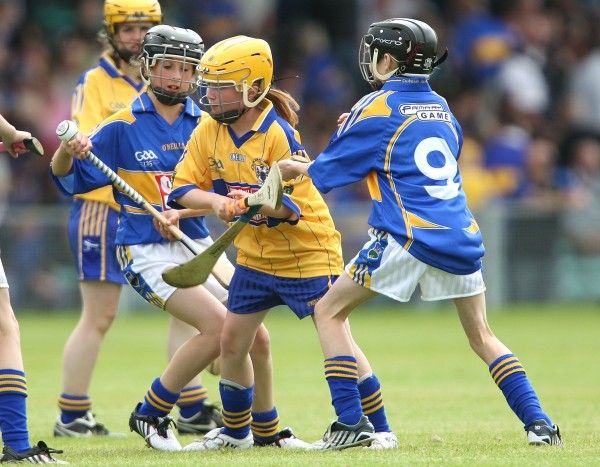 What has happened to the Gaelic culture?
When did it become this vacuum of fun? When did it get so lifeless? Since when was a game of football on a Sunday allowed to dictate how you would feel and behave for the rest of the week?
There used to be a time when you could play hard, leave it on the field, and carry on with your life afterwards. Win or lose. There used to be a time you could be proud of your effort. You were allowed to be. That genuinely used to happen.
You could give it a rattle, empty the tank, and feel some sort of fulfillment regardless of the result.
Now, if you lose a match, if you nearly lose a match, you're given a week's penance. The next training session - instead of just working on what you should actually work on and getting on with playing football - has become a verbal execution. It's a deliberate tactic of some managers to actively make sure you take next to no pleasure out of those sessions after a loss - otherwise they'd think they're doing something wrong.
'We'll see how much you're f**king enjoying yourself now. Why don't you make a joke now?' That sort of thing.
What has happened to the Gaelic culture?
When did it become this vacuum of fun? When did it get so lifeless? Since when was a game of football on a Sunday allowed to dictate how you would feel and behave for the rest of the week?
There used to be a time when you could play hard, leave it on the field, and carry on with your life afterwards. Win or lose. There used to be a time you could be proud of your effort. You were allowed to be. That genuinely used to happen.
You could give it a rattle, empty the tank, and feel some sort of fulfillment regardless of the result.
Now, if you lose a match, if you nearly lose a match, you're given a week's penance. The next training session - instead of just working on what you should actually work on and getting on with playing football - has become a verbal execution. It's a deliberate tactic of some managers to actively make sure you take next to no pleasure out of those sessions after a loss - otherwise they'd think they're doing something wrong.
'We'll see how much you're f**king enjoying yourself now. Why don't you make a joke now?' That sort of thing.
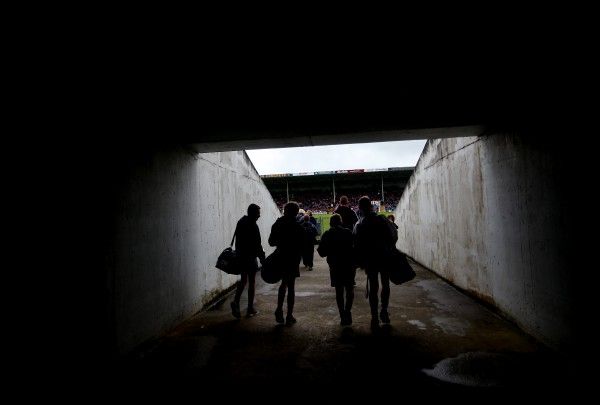 All the while, morale is decreasing, resentment is rising, and people are running away from the game and from their clubs quicker than players are being dragged from the showers for another dressing down.
And it isn't an attack at the training volumes or the increasing professionalism. It's a common misconception that players are working too hard, that teams are trying too hard to win. That's fine. That's healthy. Why wouldn't they? That's human nature to want to better yourself and you'd often find that people who step away from the game end up pursuing another activity if for nothing else but to fill the competitive void left in the their lives.
Some people run marathons. Plenty of people train harder than an average club player and they do it in their own time, for their own pleasure.
But the fact that the games of football and hurling have stepped up, tactics-wise, conditioning-wise, effort-wise is a good thing. That is not the issue.
Some people want to win. Finding that passion and drive is one of the best things you can do in this life.
https://twitter.com/SportsJOEdotie/status/680191334473437185
There's something pure about bringing yourself to the very limits of what you thought was capable. But there's also something very dangerous about bringing yourself to the very limits of your mental well-being.
And the fact that you're seemingly not allowed to take any enjoyment out of the game anymore is worrying. Fire is good until it starts burning down everything else in your life.
I used to come home from games to a concerned mother tip-toeing around, building up to a simple, "how'd you do?" If we lost, I'd just sharply cut her off and say, "No." And then I'd walk out of the room. It wouldn't be discussed and I wouldn't be spoken to for hours.
This was the best thing in my life. This was where all my best friends were. It's where I grew up and spent every single day of the week and I refused to even speak two words about it at home. Literally.
I got whipped off in the first half of a championship final before and convinced myself that night that I was finished. I had quit. I had enough of it. It had worn me down - the mental effort. But I took the winter off and got over myself. I realised that the sun was still coming up, the world was still turning and I realised that there were more important things going on outside of this depressing world of about 89 people. All of whom started off happy.
All the while, morale is decreasing, resentment is rising, and people are running away from the game and from their clubs quicker than players are being dragged from the showers for another dressing down.
And it isn't an attack at the training volumes or the increasing professionalism. It's a common misconception that players are working too hard, that teams are trying too hard to win. That's fine. That's healthy. Why wouldn't they? That's human nature to want to better yourself and you'd often find that people who step away from the game end up pursuing another activity if for nothing else but to fill the competitive void left in the their lives.
Some people run marathons. Plenty of people train harder than an average club player and they do it in their own time, for their own pleasure.
But the fact that the games of football and hurling have stepped up, tactics-wise, conditioning-wise, effort-wise is a good thing. That is not the issue.
Some people want to win. Finding that passion and drive is one of the best things you can do in this life.
https://twitter.com/SportsJOEdotie/status/680191334473437185
There's something pure about bringing yourself to the very limits of what you thought was capable. But there's also something very dangerous about bringing yourself to the very limits of your mental well-being.
And the fact that you're seemingly not allowed to take any enjoyment out of the game anymore is worrying. Fire is good until it starts burning down everything else in your life.
I used to come home from games to a concerned mother tip-toeing around, building up to a simple, "how'd you do?" If we lost, I'd just sharply cut her off and say, "No." And then I'd walk out of the room. It wouldn't be discussed and I wouldn't be spoken to for hours.
This was the best thing in my life. This was where all my best friends were. It's where I grew up and spent every single day of the week and I refused to even speak two words about it at home. Literally.
I got whipped off in the first half of a championship final before and convinced myself that night that I was finished. I had quit. I had enough of it. It had worn me down - the mental effort. But I took the winter off and got over myself. I realised that the sun was still coming up, the world was still turning and I realised that there were more important things going on outside of this depressing world of about 89 people. All of whom started off happy.
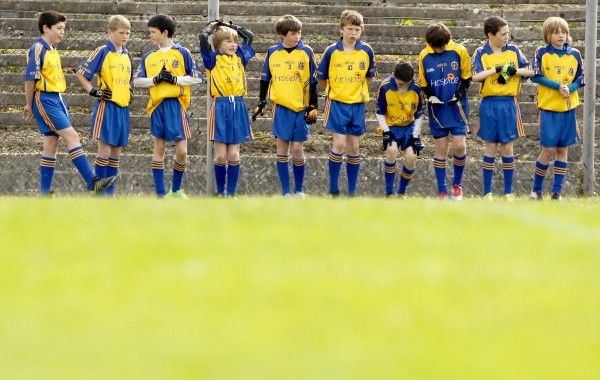 You don't realise that though when you're right in the thick of this new pseudo perfectionist culture.
And it has gotten worse and worse. Now there are young lads just quitting and it's not because they don't want to train twice a week or because they don't like being in good shape and it's certainly not because they don't like playing matches.
It's because it is unforgivably all-consuming.
It's the mentality of it all.
It's because they're told to be thinking about games for every minute of every day. They're being sent text messages by the hour. They're being told not to go out, not to eat shite, no more holidays and no more joking in the changing rooms. Then they're reminded of all that again.
They're being told how to live outside of the club. Get out of work earlier. Eat better. Reminded to drink water, no talking to the media and how every single game every single Sunday is the most important game of their lives.
WhatsApp groups are forming, pep talks are non-stop. Players have to tell 40 other lads that they won't be at training and never is even one of them let away with it.
Managers are demanding more and more commitment, more and more focus - not for the players to do well, but so that the managers can do well. They don't trust the team to just go out and do it without being hounded for a week into doing it.
You don't realise that though when you're right in the thick of this new pseudo perfectionist culture.
And it has gotten worse and worse. Now there are young lads just quitting and it's not because they don't want to train twice a week or because they don't like being in good shape and it's certainly not because they don't like playing matches.
It's because it is unforgivably all-consuming.
It's the mentality of it all.
It's because they're told to be thinking about games for every minute of every day. They're being sent text messages by the hour. They're being told not to go out, not to eat shite, no more holidays and no more joking in the changing rooms. Then they're reminded of all that again.
They're being told how to live outside of the club. Get out of work earlier. Eat better. Reminded to drink water, no talking to the media and how every single game every single Sunday is the most important game of their lives.
WhatsApp groups are forming, pep talks are non-stop. Players have to tell 40 other lads that they won't be at training and never is even one of them let away with it.
Managers are demanding more and more commitment, more and more focus - not for the players to do well, but so that the managers can do well. They don't trust the team to just go out and do it without being hounded for a week into doing it.
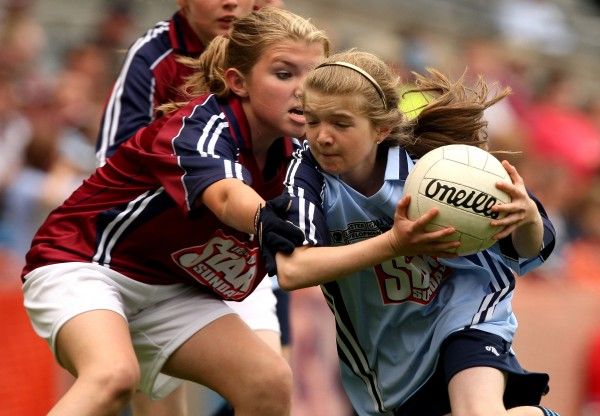 At the end of it all, three teams in the whole county win a championship. The rest of them fail. Most of them fail. And all that roaring, all that shouting and arguing and 10 months of being told you're doing it wrong wasn't worth it. That total focus and playing the part of the dutiful foot soldier wasn't worth it. You start to wonder is any of it worth it.
Donegal broke the barrier four years ago with sheer work-rate and commitment and, because of that, club teams are now being told to keep pace with them for some unjustified reason. If Donegal can do it, we can do it. Never mind the funding, the pool, the fact that it was inter-county level.
Jim McGuinness set a blueprint that inspired a nation with how he dragged the men from the hills from nowhere but his complete control over every facet of those players' lifestyles has also seeped down to club level where it's now at a stage where implementing those demands and that attitude on a team has become an easy strategy for a manager to show he's putting his stamp on things. Implementing those demands and that attitude on a team has just become the first port of call.
What has happened is that losing a game of football has become the worst possible thing imaginable where a club-wide state of mourning is enforced on a weekly basis. Managers are getting even more involved, players are told to double their sacrifices, the text messages keep coming and the pressure continues to mount.
Then you have club games postponed and rescheduled and postponed and rescheduled and, all the while, a group of young men are being pent up preparing and waiting and shitting themselves with the anticipation but D-Day draws no closer.
At the end of it all, three teams in the whole county win a championship. The rest of them fail. Most of them fail. And all that roaring, all that shouting and arguing and 10 months of being told you're doing it wrong wasn't worth it. That total focus and playing the part of the dutiful foot soldier wasn't worth it. You start to wonder is any of it worth it.
Donegal broke the barrier four years ago with sheer work-rate and commitment and, because of that, club teams are now being told to keep pace with them for some unjustified reason. If Donegal can do it, we can do it. Never mind the funding, the pool, the fact that it was inter-county level.
Jim McGuinness set a blueprint that inspired a nation with how he dragged the men from the hills from nowhere but his complete control over every facet of those players' lifestyles has also seeped down to club level where it's now at a stage where implementing those demands and that attitude on a team has become an easy strategy for a manager to show he's putting his stamp on things. Implementing those demands and that attitude on a team has just become the first port of call.
What has happened is that losing a game of football has become the worst possible thing imaginable where a club-wide state of mourning is enforced on a weekly basis. Managers are getting even more involved, players are told to double their sacrifices, the text messages keep coming and the pressure continues to mount.
Then you have club games postponed and rescheduled and postponed and rescheduled and, all the while, a group of young men are being pent up preparing and waiting and shitting themselves with the anticipation but D-Day draws no closer.
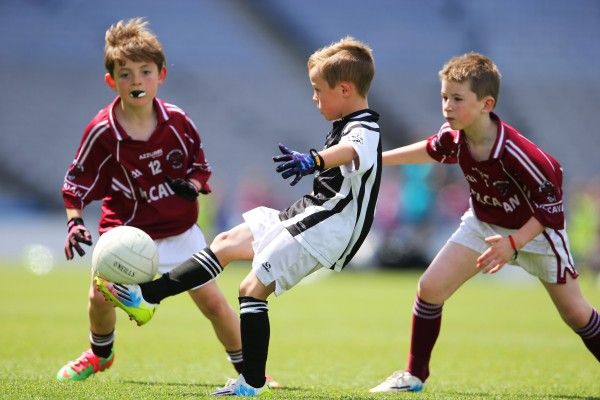 What happens then is that players just give up because they're getting no enjoyment out of the game anymore - they're not allowed to. They feel like they've committed a crime because one Sunday didn't go their way and younger fellas see this culture of doom that's headed right in their direction so they start actively looking for ways they can escape before they're even a part of it.
There are players around the world in different destinations who actually plan their trips home so they won't be roped into rejoining the team when they return.
People are genuinely running and hiding from the mental commitment that's now obligatory to be a club player.
And why wouldn't they?
It's been a long time since a young man on a senior team did something because he wanted to do it.
It's been a long time since playing hard was enough.
It's been a long time since someone cracked a joke in the changing rooms after a defeat.
Jesus, it wasn't even that funny.
What happens then is that players just give up because they're getting no enjoyment out of the game anymore - they're not allowed to. They feel like they've committed a crime because one Sunday didn't go their way and younger fellas see this culture of doom that's headed right in their direction so they start actively looking for ways they can escape before they're even a part of it.
There are players around the world in different destinations who actually plan their trips home so they won't be roped into rejoining the team when they return.
People are genuinely running and hiding from the mental commitment that's now obligatory to be a club player.
And why wouldn't they?
It's been a long time since a young man on a senior team did something because he wanted to do it.
It's been a long time since playing hard was enough.
It's been a long time since someone cracked a joke in the changing rooms after a defeat.
Jesus, it wasn't even that funny.Explore more on these topics: